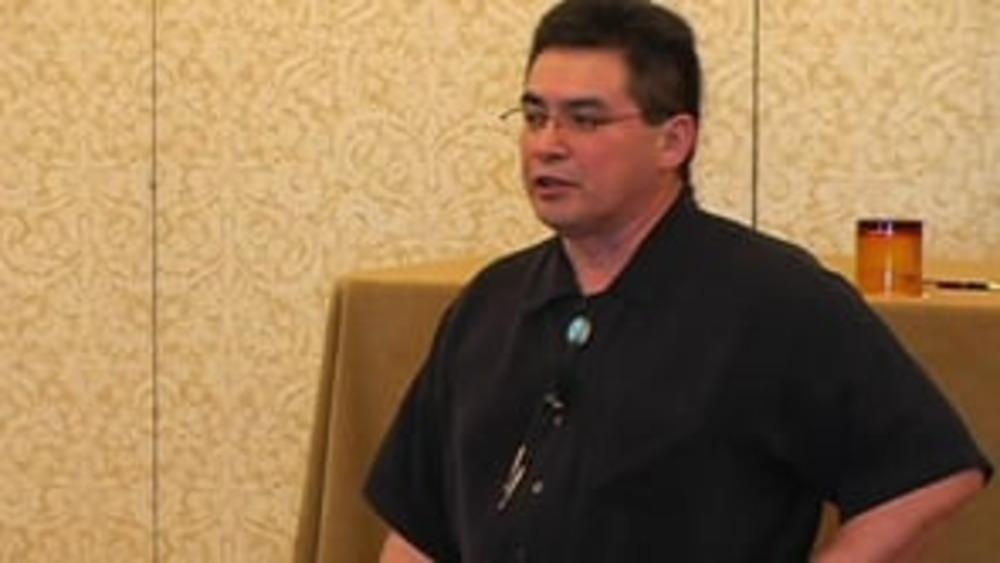Former Nez Perce Tribal Treasurer Jaime Pinkham discusses how intergovernmental agreements are becoming widely recognized as a vital nation-building tool for Native nations, amplifying their sovereignty and expanding their jurisdiction.
Additional Information
Pinkham, Jaime. "Intergovernmental and Intertribal Relations: Walking the Sovereignty Walk." Native Nations Institute for Leadership, Management, and Policy. University of Arizona. Tucson, Arizona. 2012. Lecture.
Transcript
"...But we have found that these intergovernmental agreements are actually nation-building tools. It is walking the sovereignty walk. Because every time we could reach an agreement with a local government, we found that we were expanding, we were influencing our policy agenda across a wider region. Not just about how it relates to Nez Perce lands on the reservation, but influence on the policy outcomes well beyond our reservation boundaries.
We were also finding that we were able to advance our economic infrastructure. Every time the counties or the cities could improve their water and sewer and road districts, there was a direct benefit for us. And could we have a part in helping to spur and nurture the development of their infrastructure, and them in turn helping to nurture our infrastructure to prosper as well?
Again, expanding delivering quality of services to the nation and its citizens. Nez Perce country, we're a very remote reservation, we don't have all of the...and being remote and scattered like that, it's really difficult to provide the quality law enforcement and emergency services that we need. So when we could come up with intergovernmental agreements that would meet our mutual interests, we were also expanding and able to provide quality services to other members of the Nez Perce nation.
And, of course, it responds to the federal devolution. Let's face it. I think we're going to see that, it's going to, it's a federal policy that I think will continue -- the decentralization of federal, the bureaucracy down to tribes, states and even lower governments.
We better utilize scarce resources, we resolve mutual concerns and also, most importantly to me, is it is an exercise of sovereign powers. When we do these intergovernmental agreements, it is we -- it is a sovereign decision for us as a tribe to pick and choose who we want to be our governmental partner. And we get to identify and set the stage, the framework for the nature of those relationships. So it is, it's not an erosion of sovereignty, but in fact it's an expression of sovereignty in working out these sorts of agreements."


